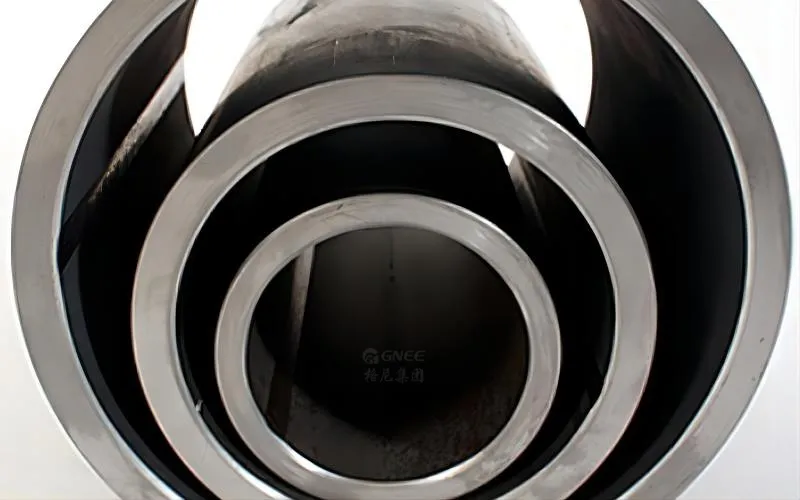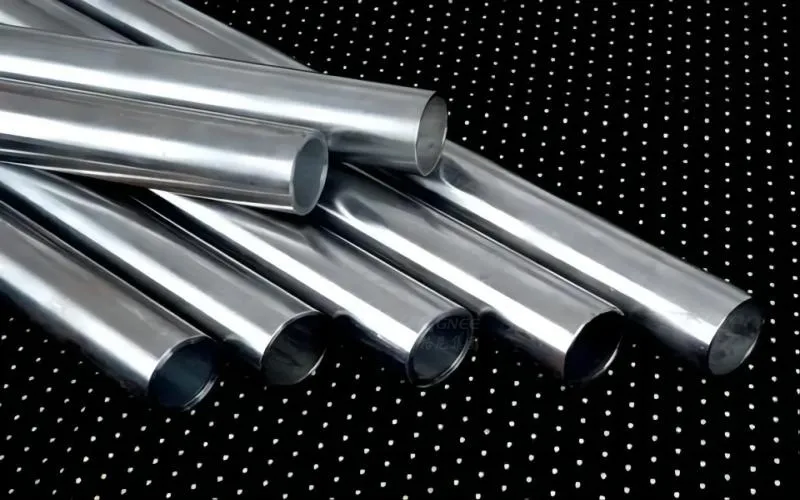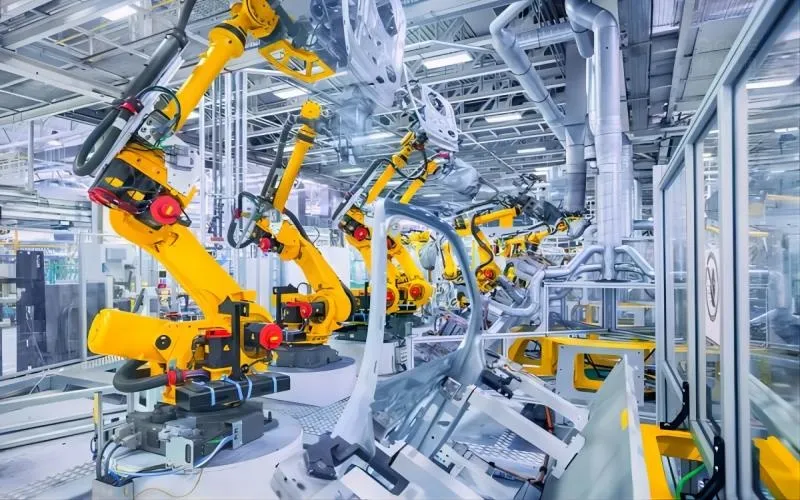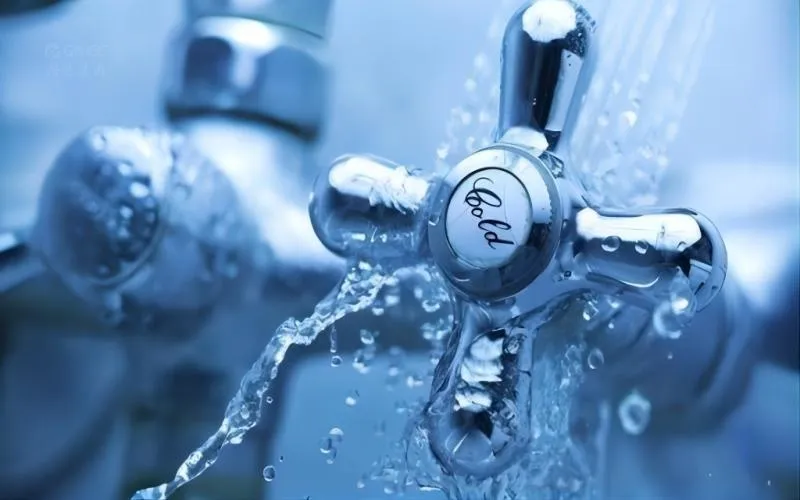What is Stainless Steel Mechanical Tubing?
Mechanical stainless steel pipe is available in many grades and alloys, such as austenitic, ferritic, and duplex stainless steels, and provides excellent cold workability, corrosion resistance, ductility, and toughness. The application’s particular needs will determine which grades are chosen.
Stainless steel mechanical pipes are made by manufacturers using techniques including cold drawing and extrusion, which guarantee the pipes’ precise measurements, smooth surfaces, and superior mechanical qualities.
ASTM, JIS, GB, and other standards and specifications are frequently used for stainless steel mechanical pipes. These standards specify what pipes must have in terms of size, tolerances, and mechanical characteristics.
Overall, because of its strength, resistance to corrosion, and other advantageous qualities, stainless steel mechanical tubing is a dependable and adaptable material that can be utilized in a variety of mechanical applications.

Characteristics and Properties of Stainless Steel Mechanical Tubing
1. Corrossion resistance: One of stainless steel‘s best qualities is its corrosion resistance. It has at least 10.5% chromium, which prevents corrosion by forming a passivating oxide layer on the material’s surface.
2. Strength and durability: Stainless steel mechanical pipes are ideal for demanding mechanical applications because of their exceptional strength and durability, which allows them to bear large loads, pressures, and mechanical stresses without deforming or failing.
3. Ductility and toughness: Mechanical pipes made of stainless steel are strong, ductile, and capable of withstanding blows and absorbing energy without cracking.
4. Stainless steel is easy to cold work, and it may be used to make pipes with tight tolerances and exact dimensions. Extrusion and cold drawing are two popular cold-working procedures used in the production of stainless steel mechanical tubes.
5. Heat resistance: Stainless steel is appropriate for high-temperature or thermal cycle applications because it maintains its strength and mechanical qualities at elevated temperatures.
6. Versatility: There are numerous grades and alloys of stainless steel mechanical pipes, each with unique properties. 316L and 309 stainless steel pipes, among others, are frequently utilized. You may choose the best material for your particular application by taking into account characteristics like temperature resistance, strength, and corrosion resistance when choosing a pipe.
7. Broad range of shapes and sizes: To accommodate various application needs, stainless steel mechanical pipes come in a range of shapes, diameters, and wall thicknesses. Its adaptability makes it possible to design and build intricate systems and structures.
8. Compatibility: Stainless steel mechanical pipe may be readily incorporated into many systems and is compatible with a wide range of other materials, including rubber gaskets and accessories.

Benefits of Stainless Steel Mechanical Pipes For the Manufacturing Industry
A cost-effective alternative to the use of solid bar stock is to supply high-quality raw materials for the production of radially machined components through stainless steel mechanical tubing.
Hollow bars reduce material waste and total machining time requirements by eliminating the need for the initial drilling operation.
1. Hygiene and Cleanliness: Stainless steel is a non-porous material that is easy to maintain and clean, making it a hygienic and clean material. Because of its resistance to mold, germs, and other impurities, it is appropriate for sectors requiring a high degree of sanitation, like the production of medical equipment, pharmaceuticals, and food processing.
2. Heat and Chemical Resistance: Stainless steel pipes are resistant to heat, chemicals, acids, and alkalis. They can also endure high temperatures. This qualifies them for use in heat transfer, chemical processing, and handling corrosive materials.
3. Cost-effectiveness and Longevity: Stainless steel pipes are durable and resistant to corrosion, which prolongs their lives. Over time, cost savings are realized because of the decreased need for frequent replacements due to their endurance. Their cost-effectiveness is further enhanced by their low maintenance needs.
4. Aesthetic Appeal: Stainless steel pipes are ideal for applications where aesthetics are crucial, like architectural buildings or ornamental features in manufacturing facilities, because of their sleek and contemporary appearance.

Uses of Stainless Steel Mechanical Pipes
Water and Plumbing Systems: Because stainless steel pipes are long-lasting and resistant to corrosion, they are utilized in plumbing and water supply systems. Water distribution, water mains, and open freshwater service connections are among their frequent uses.
Industrial Processes: A variety of industrial processes involving the movement of fluids, gases, or chemicals make use of mechanical pipes made of stainless steel. They are frequently employed in the food and beverage, oil and gas, chemical processing, and pharmaceutical industries.
Stainless steel pipes are utilized in structural applications where robustness and longevity are essential. They are frequently utilized in construction for the infrastructure, supports, and frames of buildings.
Heat Exchangers: For effective heat transmission in applications like HVAC systems, power plants, and industrial operations, heat exchangers are made of stainless steel pipes.
vehicle sector: Exhaust systems, fuel lines, and other parts needing durability and corrosion resistance find use for stainless steel pipes in the vehicle sector.
Hydraulic Systems: Because stainless steel pipes are so strong and resistant to corrosion, they are utilized in hydraulic systems. They are frequently found in hydraulic fittings, valves, and cylinders.
Marine Applications: Because stainless steel pipes don’t corrode in saltwater settings, they are frequently utilized in the marine industry. They are employed in the construction of ships, offshore buildings, and marine machinery.
Agricultural Equipment: Because stainless steel pipes are long-lasting and resistant to corrosion, they are utilized in irrigation systems, water pumps, and storage tanks.
Food and Beverage business: Food products are processed, transported, and stored in this business using stainless steel pipes. They are impervious to contamination and corrosion and adhere to high hygiene requirements.
Pharmaceutical Industry: During production procedures, the pharmaceutical industry uses stainless steel pipes to transfer fluids, gases, and chemicals. They adhere to strict standards for hygiene and cleanliness.



